Requirement #4 - Command Respect
A traffic control device must command respect from road users.
Common Errors
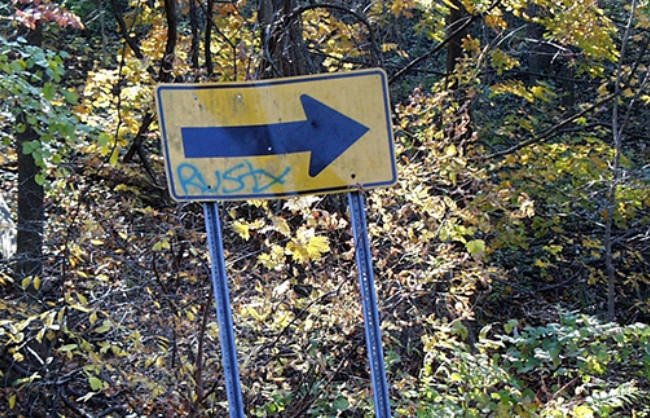
While it is important to specify, design, and install traffic control devices properly and uniformly, the respect that a sign receives from an approaching motorist can be diminished by other factors.
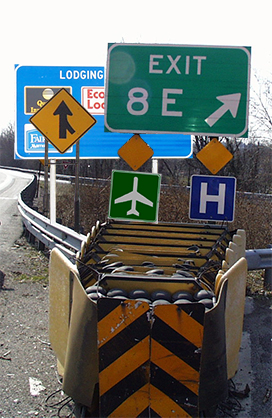
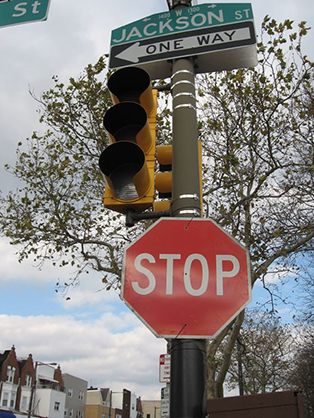
Signs spaced too closely to one another, unrelated signs mounted on a single post, and the use of unnecessary signs all can affect the way the sign's message is perceived.
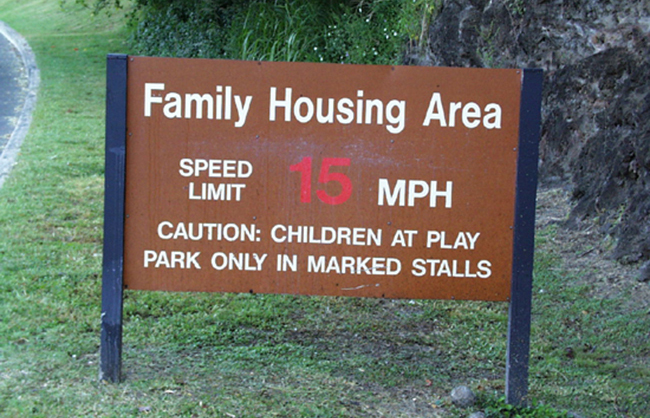
General posting of regulations is nonstandard and should be avoided.
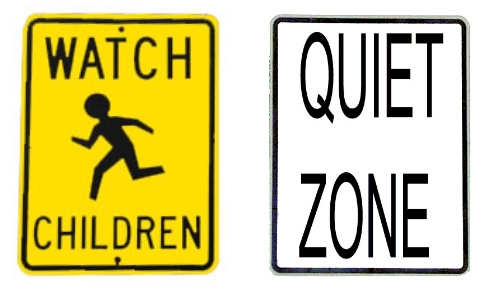
General notice signs such as WATCH CHILDREN and QUIET ZONE should also be avoided as they are nonstandard signs. They are generally not heeded and reduce the attention paid to signs of greater importance.
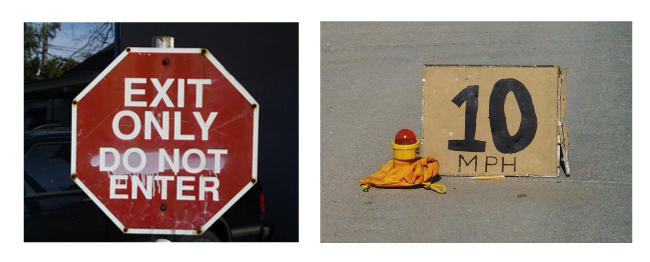
Standard signs should never be modified to change their meaning. Nonstandard signing confuses the motorist and compromises the effectiveness of all signs.
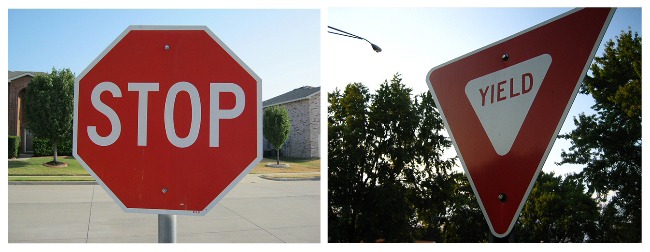
For effective, safe operation of a road network, traffic control devices meant to regulate, warn, or guide motorists should be planned, well-maintained, and attractive. Poorly planned and poorly maintained signs lose authority.
Inspection
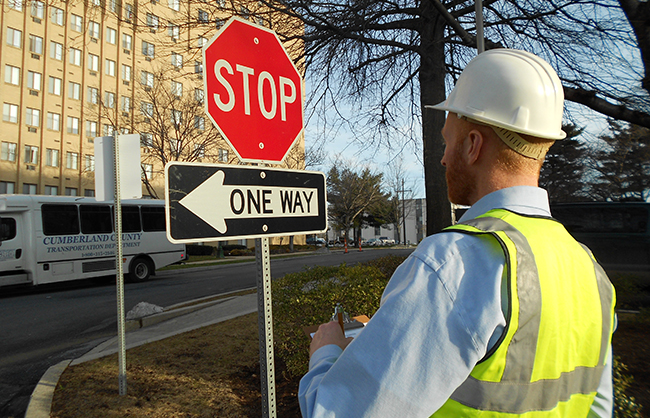
Biannual inspections should be conducted, both by day and night, to determine the need for sign cleaning, repositioning, replacement, removal, or the need for clearing of sign obstructions.
Inventory
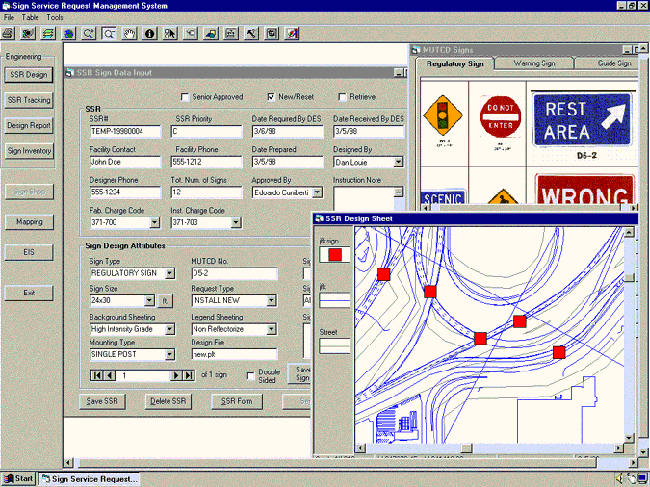
An effective sign inventory system can help to maintain a complete and accurate accounting of the locations, types, and conditions of installed traffic control devices. It can also help with tracking when they require replacement.
Maintenance
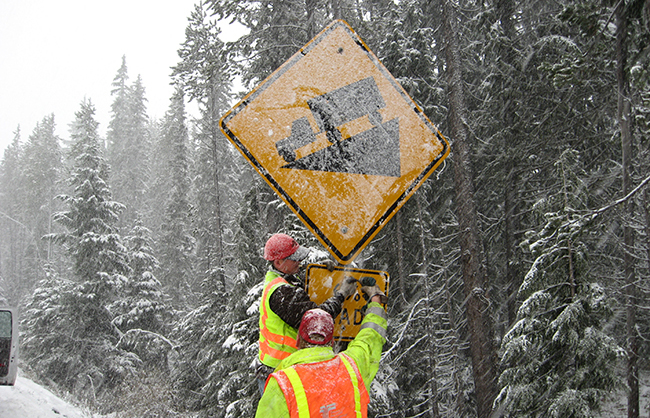
Signs have an average life expectancy of 7 to 10 years. Regular maintenance helps to ensure a long life span, thereby reducing replacement costs. Maintenance should include tightening fastenings, solidifying mounting posts, cleaning with a mild detergent followed by rinsing, and removal of vegetation around the post and in front of the sign.
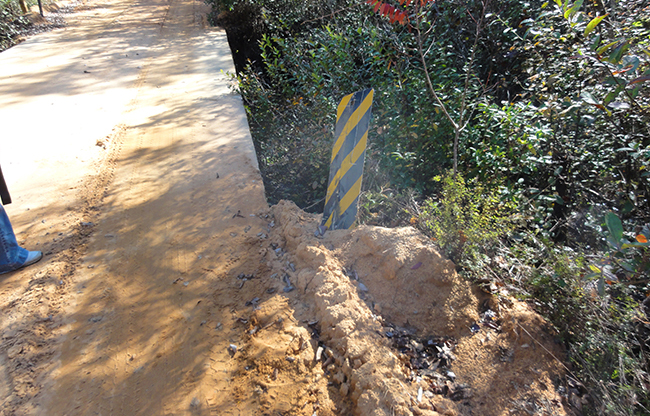
If a traffic control device is damaged to the extent that field repair is not possible, then a replacement is necessary.
Temporary Installation
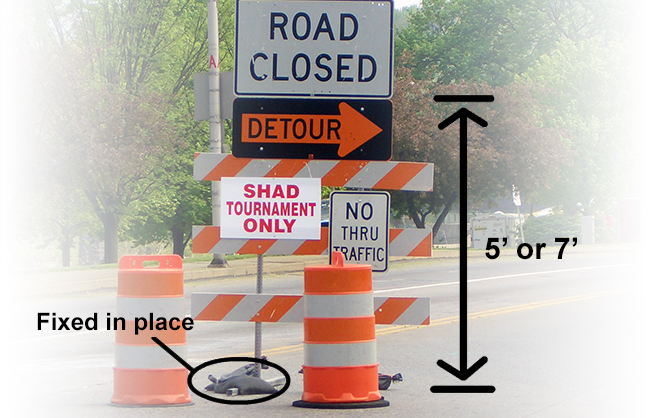
Temporary traffic control installations utilizing portable signs are subject to the same rules as permanent signs. Poorly placed temporary signs are often ignored. Although the application is considered temporary, the signs should be posted at a standard height (5 or 7 feet depending on application) and fixed in place so as to not be moved out of position.


